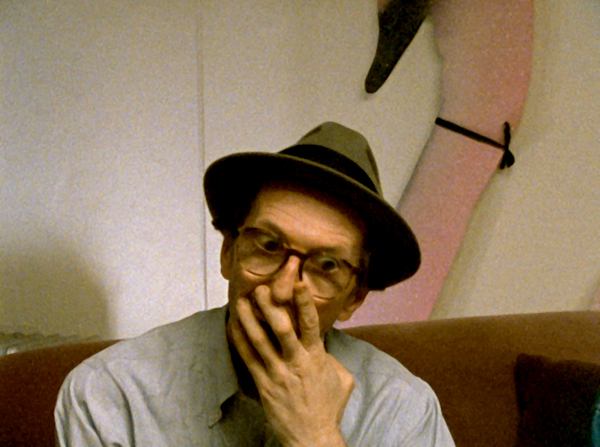|
Reviews of Recent Independent, Foreign, & Documentary Films in Theaters and DVD/Home Video

CRUMB (1995) Terry Zwigoff is a filmmaker very much
in tune with his subjects on a sort of visceral level of
extremes. The comic book adaptation Ghost World is cynical (or
skeptical), but it has a heart, and Bad Santa is as dark as a
Christmas comedy can get. In Crumb, he achieves one of the most
candid documentaries from the
‘90’s, which he centered on his friend, illustrator Robert Crumb. The film may
mean more to those familiar with Crumb when he was in his prime as an
artist. He’s still a legend in the underground comic book/art scene, but
he hasn’t quite broken into the mainstream. I, for one, was often mesmerized by his work. Both the Crumb and Louie Bluie DVDs feature audio commentary tracks from Zwigoff. At the start of Louie Bluie, he mentions that he usually doesn’t like to do commentaries, but admits that since it’s for the Criterion Collection, he made an exception. He then goes into how he found his subject, fiddler Howard Armstrong, who was just an obscure musician to him (despite both being from Chicago). Zwigoff originally tracked down Armstrong for an article, but with some help from friends, his brother, and a National Endowment grant, Zwigoff made his movie over the course of a few years. Most fascinating is hearing how Zwigoff actually staged scenes that look so completely natural, like those set where Armstrong lived (Zwigoff had no permission to shoot in the actual apartment).
Even more involving, and kind of a double treat, is on the Crumb
DVD. Along with a new commentary track, there is the banter from 2006
between Zwigoff and Roger Ebert (immediately prior to his
cancer surgery, which removed his voice). It’s hard to say if there is a
better track. What I ended up doing was alternating between one and the
other, or doubling back to listen to the other track for a few scenes in
case I missed something. I might prefer the Ebert/Zwigoff exchange overall, if only because it’s more constructed like a conversation than
a typical audio commentary. Zwigoff solo is more lackadaisical, and,
ultimately, certain parts become redundant when hearing both back to
back. But overall you get a full experience of the film’s history; how
Zwigoff met Crumb (originally Zwigoff wanted Crumb to create a
comic-book based on a documentary film his friends had made); why Crumb’s sisters didn’t participate;
and how little David Lynch actually had to do with the film and how much
Academy Award-winning editor Walter Murch did. It’s informative,
fun, and one gets the full sense of the artistry of the subject and the
director. The DVD also features several deleted scenes, though nothing
too big is left out of the film (though the section on Crumb’s first
marriage is illuminating).
Jack Gattanella
|

